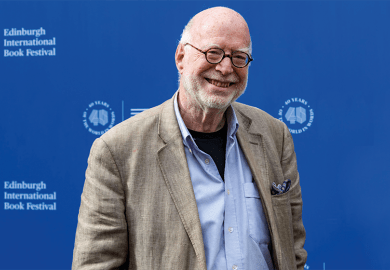The popular perception of the Church of England, and of Anglicanism more generally, is of a denomination in conflict between opposing camps of conservatives and liberals. While the terms of this opposition reflect real disagreements, they also obscure more profound points of resemblance and difference. All such classifications tend to gather, and perhaps confuse, a number of features, but broadly considered the liberal/conservative contrast is a moral and social one and needs to be distinguished from several others, principally traditionalist/progressive, orthodox/heterodox, and Catholic/Reformed - these being cultural, theological and ecclesiological, respectively.
Certainly, there are significant overlappings in the membership of these categories, but mixing as well as matching is to be found. Thus an opponent of women's consecration as bishops may be a liberal on the matter of homosexuality among the clergy, a liturgical progressive and a Catholic. Equally, an advocate of women bishops may be morally conservative and liturgically traditional.
What, then, is the most fundamental difference? The most important, I think, is the opposition between orthodoxy and heterodoxy, but that raises the question of the criteria of each, and reflects a theological-cum-philosophical interest. William Pickering views Anglicanism from within, as a C of E priest of nearly 60 years' service, as well as from the perspective of sociology. Although his primary interest is in the nature and development of Anglo-Catholicism, his observations often bear on the general identity (or identities) of Anglicanism.
Subtitled "A Study in Religious Ambiguity", this is a lightly revised and slightly extended edition of a well-received sociological study first published 20 years ago. The additions are a new preface and a postscript totalling fewer than 20 pages, but the publication is welcome and timely, bringing an interesting reflection back into print at a point when Anglicanism seems to have moved further towards self-destruction.
The book is not deeply theoretical, claiming to describe a social phenomenon rather than aiming to dig into its theological roots. Nonetheless, conceptual, cultural and moral questions are broached, and the beginnings of answers appear briefly along the way. The only explicitly theoretical discussion comes at the outset and provides the subtitle. Drawing on Emile Durkheim, Pickering proposes that all religions involve conceptual dichotomies of transcendent and immanent, sacred and mundane, etc, the lived application of which gives rise to "ambiguities". The precise sense and significance of these are not explored, save to the extent that the examination of Anglo-Catholicism is said to involve such ambiguities.
One repeated example is that of being a movement that looks favourably to medieval Roman Catholicism from within the walls of an institution - the C of E - that renounced that very Church and all its works. This is interesting, but it calls for the sort of ecclesiological development that Pickering eschews. A deep and inescapable question for Anglicans is whether their communion should see itself as part of Reformed Christianity or as part of the Catholic Apostolic tradition. Anglo-Catholics, liberal and conservative, traditionalist and progressive, orthodox and heterodox, all favour the latter; but there is a question of whether their claim can be sustained.
Membership of the "One, Holy, Catholic and Apostolic Church" implies sibling identity with the Eastern Orthodox and Roman Catholic Churches, and a criterion of reciprocal recognition is maintenance of the Apostolic tradition. Yet the developments within Anglicanism over female ordination and homosexuality are viewed by these other Churches as putting it beyond the pale. Effec-tively, Roman Catholic/Anglican discussions are suspended and the Orthodox view recent developments with horror. Ironically, those very developments have found support among some erstwhile "Anglo-Catholics", including, I suspect, the author.
That looks set to have two effects: Anglo-Catholics in search of Apostolic validation will leave, many hoping for Uniate status within the Roman Church, while those who remain within Anglicanism will see it assume the identity of a Reformed Protestant denomination with consequent sectarian splitting. Avowing "ambiguity" is unlikely to prevent initial or subsequent separations.
Anglo-Catholicism: A Study in Religious Ambiguity
By William Pickering. James Clarke & Co. 300pp, £19.50. ISBN 97802679883. Published 29 May 2008
Register to continue
Why register?
- Registration is free and only takes a moment
- Once registered, you can read 3 articles a month
- Sign up for our newsletter
Subscribe
Or subscribe for unlimited access to:
- Unlimited access to news, views, insights & reviews
- Digital editions
- Digital access to THE’s university and college rankings analysis
Already registered or a current subscriber? Login



